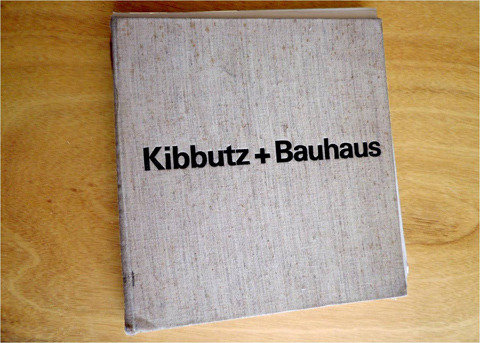Kibbutz and Bauhaus
dal 23/11/2011 al 8/4/2012
Segnalato da
23/11/2011
Kibbutz and Bauhaus
Bauhaus Dessau Foundation, Dessau
The exhibition shows the close spiritual connection between the kibbutz and the Bauhaus idea. The documents, plans, photographs and interiors on show give an impressive picture of the kibbutz designs.

The Kibbutz, this internationally unprecedented form of collective community, has its origins in the European youth movement and in the upcoming Jewish generation’s Zionist vision of a new life in the Promised Land. Educated in Europe for hard, pioneering work to reclaim this land, they emigrated to Palestine. It was under these conditions that the first kibbutz was founded in Degania 100 years ago. The slogan of the collective is: “From each according to his ability, to each according to his needs”. The exhibition opens with a chronicle of the utopias and realities of this development based on specific kibbutzim.
Emerging architects and planners such as Richard Kauffmann and Samuel Bickles brought the ideals and methods of New Architecture from Europe to Palestine and had a lasting influence on the planning and design vocabulary of the kibbutzim. A new architecture for the new Israel, in a new land. Conversely, in the second half of the 1920s, upcoming architects such as Arieh Sharon and Shmuel Mestechkin moved from Palestine back to Europe in order to further their studies. They went to the Bauhaus Dessau. The ideals of the kibbutz and the Bauhaus formed a unique synthesis. Other young Bauhaus students such as the architect Munio Weinraub found their way to Palestine as a result of Nazi persecution. Based on selected biographies, the exhibition reveals the life journeys of the Bauhaus students between Europe and the Orient.
The third part of the exhibition shows, with the aid of images, plans and furniture, how modern planning and architecture gives a structural pattern to the socialist Zionist model of society. This part of the exhibition is based on the Israeli entry for the Architecture Biennale 2010 in Venice, “Kibbutz – An Architecture without Precedents”.
Today, the structural and spiritual future of the kibbutz is more uncertain than ever due to changes to the social framework and personal lifestyle aspirations. The exhibition closes with interviews conducted with inhabitants of the kibbutzim, who give diverse personal insights into these transformation processes.
The exhibition in the Bauhaus Dessau, which opens on 24th November 2011 under the auspices of the Israeli Ambassador to Germany Yoram Ben-Zeev and the Minister for Culture Bernd Neumann, shows the close spiritual connection between the kibbutz and the Bauhaus idea. The documents, plans, photographs and interiors on show give an impressive picture of the kibbutz designs. Also on show is the project “Beyond Eden”, for which photographer Stephanie Kloss and political scientist Antonia Blau photographed 40 kibbutzim and conducted interviews with their residents. There, they found a fragmented picture of an immovable present, a utopian past and a collective-fragmented identity.
Opening on Thursday, 24th November 2011 at 7 pm
Bauhaus building
Gropiusallee 38, Dessau-Roßlau, Germany
daily from 10 am to 6 pm
Admission 6 / 4 EUR



